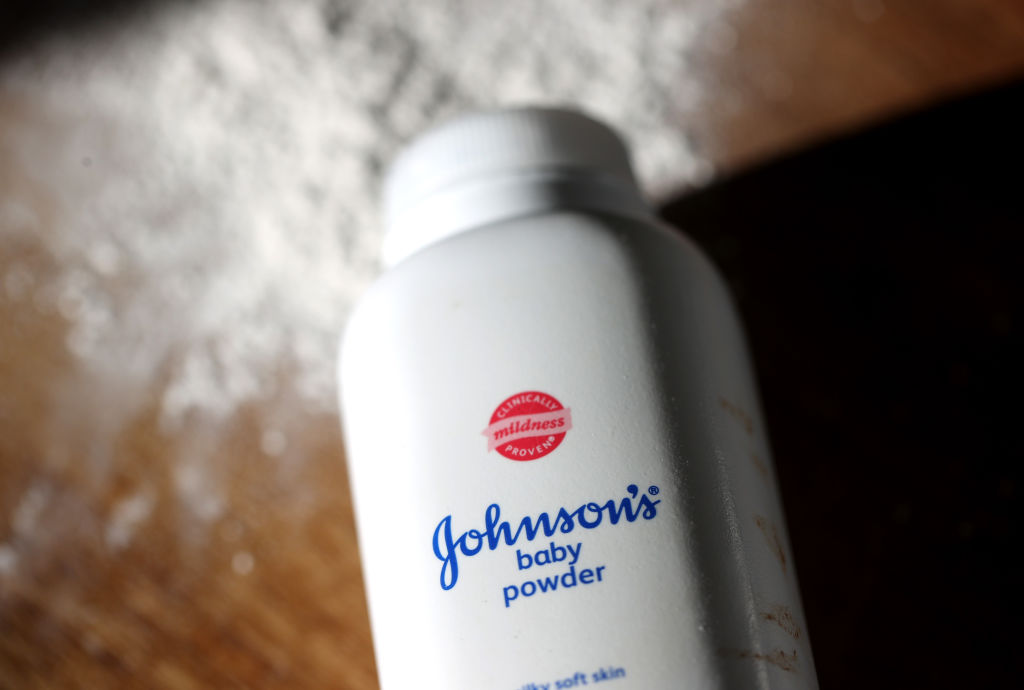Johnson & Johnson agrees to $8.9 billion talc settlement


A free daily email with the biggest news stories of the day – and the best features from TheWeek.com
You are now subscribed
Your newsletter sign-up was successful
Johnson & Johnson has agreed to pay $8.9 billion to tens of thousands of people who alleged the company's talcum powder caused cancer, The New York Times reports. Lawyers for some of the plaintiffs called the proposed settlement a "significant victory" in a case that has been ongoing for over a decade.
The company would pay out the proposed settlement over 25 years through a subsidiary, LTL Management, which filed for bankruptcy protection on Tuesday to enable the $8.9 billion payout, Johnson & Johnson said in a court filing. If the bankruptcy court approves it, "the agreement will resolve all current and future claims involving Johnson & Johnson products that contain talc, such as baby powder," the Times summarizes. The company will also need to convince enough claimants to approve the settlement plan. An earlier bankruptcy filing that included a $2 billion settlement was dismissed by a U.S. appeals court earlier this year.
In a statement by lawyers representing nearly 70,000 plaintiffs, the "landmark" settlement was described as a "significant victory for the tens of thousands of women suffering from gynecological cancers caused by J.&J.'s talc-based products." But other lawyers representing claimants opposed the settlement, "though they acknowledged that approval by the court would apply to all plaintiffs," the Times writes.
The Week
Escape your echo chamber. Get the facts behind the news, plus analysis from multiple perspectives.

Sign up for The Week's Free Newsletters
From our morning news briefing to a weekly Good News Newsletter, get the best of The Week delivered directly to your inbox.
From our morning news briefing to a weekly Good News Newsletter, get the best of The Week delivered directly to your inbox.
For example, Jason Itkin, whose law firm is representing 10,000 claimants who say the talc-based powders caused their ovarian cancer, said the settlement is "bad for victims" and will likely be blocked in court. "Even though $8.9 billion sounds like a lot of money, when you spread it out it comes out to not very much at all for the people who suffered," he said.
A free daily email with the biggest news stories of the day – and the best features from TheWeek.com
Theara Coleman has worked as a staff writer at The Week since September 2022. She frequently writes about technology, education, literature and general news. She was previously a contributing writer and assistant editor at Honeysuckle Magazine, where she covered racial politics and cannabis industry news.
-
 What to know before filing your own taxes for the first time
What to know before filing your own taxes for the first timethe explainer Tackle this financial milestone with confidence
-
 The biggest box office flops of the 21st century
The biggest box office flops of the 21st centuryin depth Unnecessary remakes and turgid, expensive CGI-fests highlight this list of these most notorious box-office losers
-
 What are the best investments for beginners?
What are the best investments for beginners?The Explainer Stocks and ETFs and bonds, oh my
-
 TikTok secures deal to remain in US
TikTok secures deal to remain in USSpeed Read ByteDance will form a US version of the popular video-sharing platform
-
 Unemployment rate ticks up amid fall job losses
Unemployment rate ticks up amid fall job lossesSpeed Read Data released by the Commerce Department indicates ‘one of the weakest American labor markets in years’
-
 US mints final penny after 232-year run
US mints final penny after 232-year runSpeed Read Production of the one-cent coin has ended
-
 Warner Bros. explores sale amid Paramount bids
Warner Bros. explores sale amid Paramount bidsSpeed Read The media giant, home to HBO and DC Studios, has received interest from multiple buying parties
-
 Gold tops $4K per ounce, signaling financial unease
Gold tops $4K per ounce, signaling financial uneaseSpeed Read Investors are worried about President Donald Trump’s trade war
-
 Electronic Arts to go private in record $55B deal
Electronic Arts to go private in record $55B dealspeed read The video game giant is behind ‘The Sims’ and ‘Madden NFL’
-
 New York court tosses Trump's $500M fraud fine
New York court tosses Trump's $500M fraud fineSpeed Read A divided appeals court threw out a hefty penalty against President Trump for fraudulently inflating his wealth
-
 Trump said to seek government stake in Intel
Trump said to seek government stake in IntelSpeed Read The president and Intel CEO Lip-Bu Tan reportedly discussed the proposal at a recent meeting
